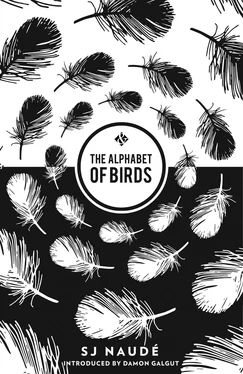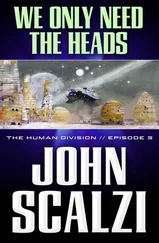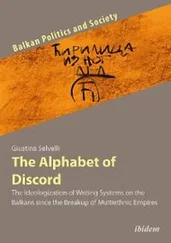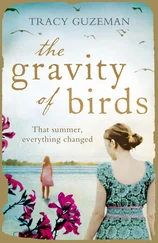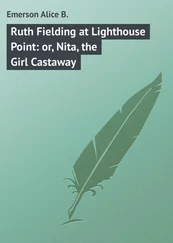After a few days he gets up. It is late afternoon. He opens the balcony doors. On the small balcony he does a few exercises. He is trying to find grace. He improvises his own clumsy pieces of choreography. There is sorrow in his bones. Slowly he starts displacing it through his movements on the balcony. Where the sorrow originates does not matter, he decides, just how one gets rid of it. But he knows he will keep gravitating towards the source. One cannot deny origins. Muscles, after all, start moving from the bone. He switches his phone on again, and an hour later Sam calls him to tell him about Butoh, about how it has taken over his body.
The next day he unlocks the door and walks out without hesitation, breathing salty air into his lungs, the aromas of sea and fynbos. His strength has returned. He is hungry.
He is back in Pretoria. Sam is so dedicated to his stage art that they hardly see each other. He gives Sam up to his movements, to the stage. Even though he is a student, Sam’s talents are such that he is in high demand in the trickle of stage productions that parade as public cultural life here. On the one occasion that he does see Sam, there are new stories. Sam tells of a period when he and his mother lived in a Hare Krishna temple, how he was molested there, how his mother was incapable of preventing it, how he then gained weight terribly as a young schoolboy, becoming almost immobile. During his teenage years there was a bulimic period, followed by a fanatical regime of fitness and diet. The narrative of all these manias is offered soberly, without self-pity. At some point, nevertheless, it all becomes too much. He has gained a new simplicity of physique and clarity of mind. He feels scorched clean, at odds with these difficult things of the body and the past. They become loosened from one another, he and Sam.
Then he meets another young man, an accountant. Bert. He does not know where all this youthfulness surrounding him is coming from. He is not seeking it out. One might perhaps say that Bert is a little lacking in imagination, yes, but is that necessarily a disadvantage? Imagination, after all, requires so much energy. The accountant has a good sense of humour. He is steady. Their bodies fit, his and Bert’s. The man has a staggering erotic repertoire which does not accord with his image of Afrikaans decency. Outside the erotic sphere they are like marionettes. Neither of them challenge the puppet master, they are satisfied with the clumsy manner in which their bodies cut the air. They do not ask questions of the muscles, do not bend their bodies into question marks.
He no longer sees Sam. At night, in the guest house, he circles endlessly around the bed in which the accountant is sleeping as if in a coma. Past the foot of the bed to the other bedside table and back. He has to touch his pillow each time before the next about-turn. A dumb zoo animal. He forces himself to stop, looks out of the window. The profiles of tropical plants are visible against the night sky. Now he knows. That’s what he is waiting for: for the body on the bed to start rattling so that he may hold it and contain the convulsions. But the sleeping one keeps snoring without stirring.
In the midst of all his thoughts about bodily movements, his sister, who is going through a traumatic divorce, says, ‘It has become an integral part of me, the stress; it’s in my blood. I am constantly trembling and my fingers have become crooked and stiff.’
On an impulse he says, ‘Come.’
He and his sister get up from where they are having coffee in the guest house. While they walk, he calls Sam. Sam is not surprised to hear from him again, chatters as if nothing has happened. Full of light and goodwill.
‘I need your help,’ he says.
‘Of course,’ Sam says.
They arrange to meet in a theatre on the dull campus. His sister, he tells Sam, was a ballerina in her young days. She started dancing on her toes too early, without their parents’ knowledge, when her feet were still soft and not fully formed. Then little bones in her feet shifted and ruined her ballet dreams. She had to stop dancing and even today, thirty years on, it hurts when she walks.
That was perhaps the beginning of his sister’s withering, he thinks, when her feet were ruined. Long before her husband accelerated the shrivelling. Perhaps she reached the height of her joy and freedom when, as a child, she stretched upwards on her toes, in a heavenwards curve, like an unknown letter. He looks at her. She is slightly hunched, as if straining to get enough oxygen in her body. As if the bones have started to bend and shift everywhere.
‘So, here’s a substitute for you, someone with better instincts than mine.’ That is how he introduces his sister when they meet in front of the theatre. Everyone is smiling.
Sam is standing behind her. They are on the stage. They do a few exercises to refresh her memory and to start forcing her skeleton back into position. He is sitting in the empty theatre, towards the back. Sam runs up the aisle to the technical control console, switches on the lights. Spotlights in pastel colours surround his sister. Sam switches on the music. For the first time in years, she starts to dance. Tentatively. Shadows of old movements starting to unwind the body’s memory. Then she stops.
‘I’m a bit lost,’ she says, ‘it’s too bare.’ She looks tiny on the stage.
His sister, he thinks in the dark, has the kind of temperament that makes her vulnerable to the core. Love simply flows from her — without hindrance, dangerously. The man in whose web she has become trapped, whose claws have left such indelible marks, sensed it instantly. He sucked her dry and then started torturing her for the emptiness that remained.
‘We need a centre point,’ Sam says, ‘to make it less wild and empty.’
Sam disappears behind the stage, brings out the spaghetti Jesus. Smoke also starts bubbling out, floating towards her. Sam emerges with a flamboyant jump.
‘Smoke to dance with!’ Sam says, and lifts her in his arms.
They start dancing a pas de deux, their bare feet in the smoke. The choreography is being improvised. It centres around a delicate entanglement of arms and a rubbing of heads — her blondeness against Sam’s long hair, which has the colour and gloss of crude oil. Initially she is stiff, but gradually she relaxes (from the dark he looks at her ribs, on the verge of cutting through the skin). They sink to the floor with their buttocks and backs propped against each other. He starts recognising something of his sister in her movements again.
At one point his sister performs a sequence that so upsets him he has to look away. She detaches herself from Sam. She keeps her feet in one place, and, straining and stretching, bends herself into such distorted self-embracing twists that she almost tears apart. She is trying to erase herself.
Sam is behind his sister. He knows Sam cannot see him, the light is too bright for that, but Sam has enough experience to make his audience feel as if he is looking straight at them.
When the music stops, her chest is heaving. For the first time in years, it looks as if something healing is flowing through her, as if she is starting to regain her original shape. She smiles at Sam for a while and he at her. She nods her head slowly, he nods his head slowly. Neither says anything.
Through his sister’s resurrection, Sam touches his own heart again. It is a biological process, as in the dream: something is physically flowing through the dark, like a warm snake, settling like a dark and soft thing in his intestines.
Now he is feeling torn between Sam and Bert. He tells each about the other, decides it is the decent thing to do.
Sam shrugs his shoulders. ‘It’s cool.’
No! he thinks. It is not cool. He wishes Sam were less of a hippy, were possessive and suffocating. Perhaps then he would be able to fall in love with him more swiftly. But perhaps the love would dissolve more swiftly too, then.
Читать дальше
